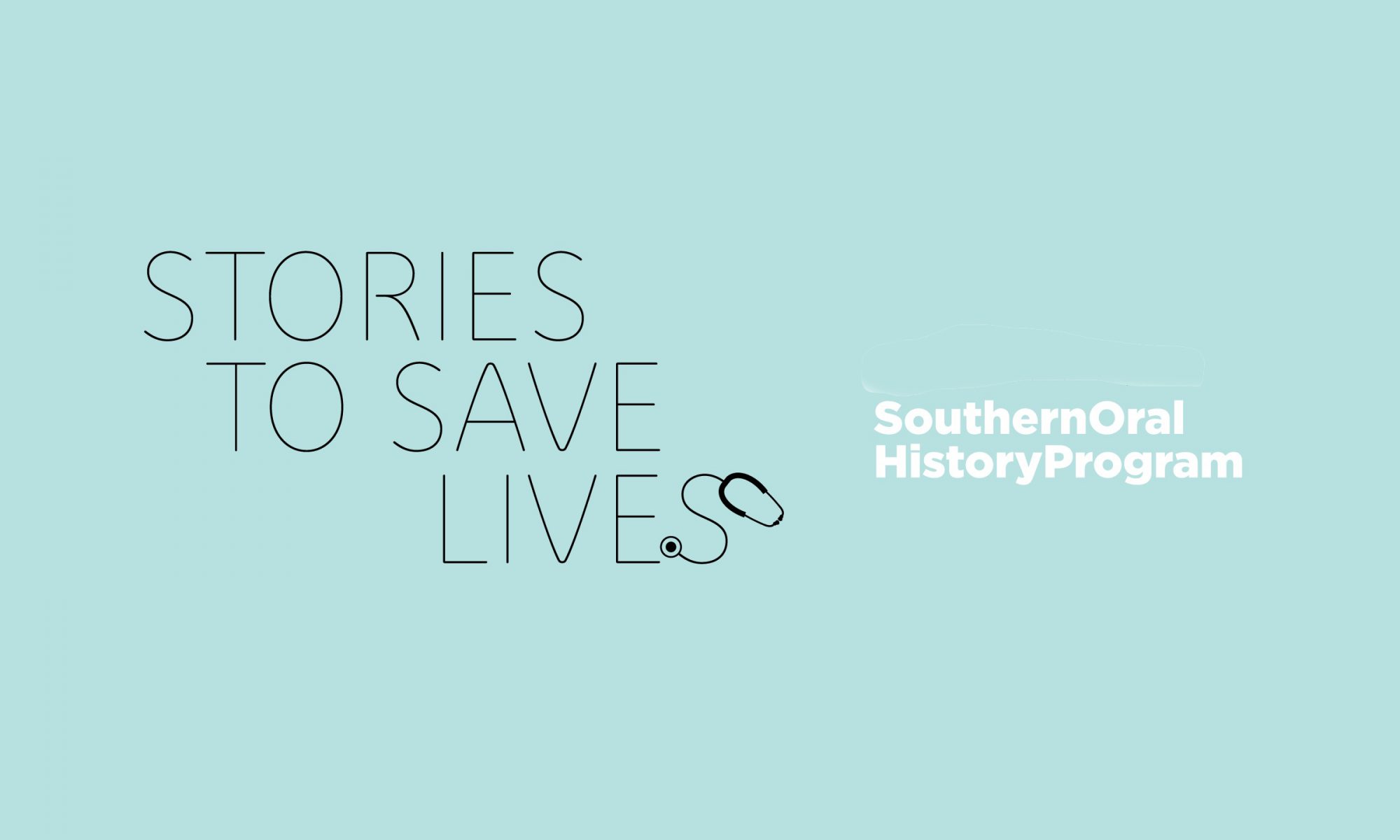Following the research effort of the FIRE Grant, field scholars took off to various counties in North Carolina to collect interviews specifically focused on medical care in the South. You’ll find a few of those clips below, organized into themes. You can also access the entire archive of interviews here.
Changes in Healthcare and Insurance
In this playlist, a few narrators discuss how healthcare billing and delivery has evolved in recent years. Barbara Brayboy, member of the Haliwa Saponi tribe and educator at the Haliwa-Saponi Tribal School in Warren County, North Carolina, reflects on how technology has made healthcare delivery impersonal. Ana Maria Deaver, a native Panamanian and interpreter at CommWell Health, talks about how the clinic’s sliding-scale payment model results in more patients seeking care at clinics than the hospital. Rossie Lindsey, a life-long resident of Chatham County, discusses her issues with acquiring private health insurance. Richfield, North Carolina resident Donald Williams tells about a time before insurance and the rising costs of care in his family. Karen Williamson describes how changes in the healthcare system resulted in less coverage and the complicated juggling act now required for her to manage her health needs (see “Self-Sufficiency” below for more on Karen). Sabra Hammond, a provider at CommWell, discusses the how cost negatively factors into providing care and unpacks the compounding stressors placed on providers in the current system; finally, she describes what makes being a doctor worth the while.Self-Efficacy
The narrators featured in the playlist above tackle the topic of self-efficacy, especially as it relates to health. Karen Williamson, the primary caregiver to her mother in Caswell County, North Carolina, explores the tension between overbearing caregiving and allowing a loved one to retain their agency, in this case, her brother. Tim Schwantes, a health policy consultant for grassroots non-profit Health Places By Design, talks about the link he sees between mental health and physical health. Lisa McKeithan, a director at CommWell Health, unpacks some best practices for patients to advocate for themselves within the 15-minute-visit model. Mickey Gerringer, a 98-year-old retiree in Pittsboro, North Carolina, discusses the frustrations of the aging body and the resulting loss of self-reliance, from falling to giving up driving. Crystal DeShazor reflects on helping empower patients to be better self-advocates as a Community Health Worker in Danville, Virginia. Healther Troutman of Pittsboro, North Carolina talks about what kind of familial support she needs as she encounters the minutiae of day-to-day life with cancer.The Patient-Provider Relationship
In this playlist, narrators dive into stories and reflections about the relationship between a patient and their care provider. Jeffrey Balfrey, long time North Carolina resident, explains how having a doctor “tell you like it is” was ideal and led to him having more confidence in them. Ethel Crowell, another life-long North Carolinian, talks about important qualities in a doctor and how being assertive in that relationship can go a long way. Next, Carl Henley tells a story about an old knee injury that lead to an unsatisfactory knee-replacement consultation later in life. Lifestyle medicine specialist Dr. Denise Hunter discusses how the exam room can be a place that supersedes bias and prejudice. Finally, Annie Martinie, the program officer for health and wellness at the Danville Regional Foundation, discusses the difficulty of finding a doctor flexible enough to meet her specific care needs at the intersection of preternaturally high blood pressure and “white coat syndrome.”
